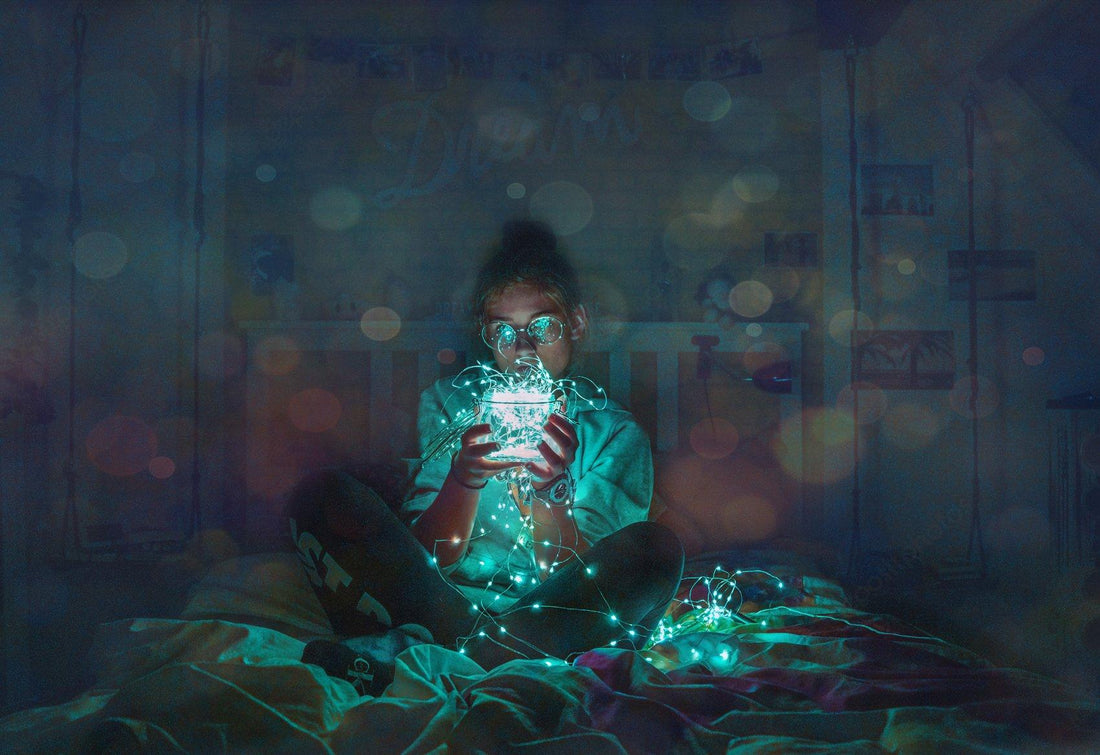

Tips for Better Sleep: 7 Simple Tips to Get a Better Night's Sleep
Table of Contents
Most athletes check off the training, nutrition, and supplement boxes when it comes to pursuing personal fitness, but one box is often neglected. Sleep is one of the most important tools for recovery, and getting better sleep is one of the easiest ways to improve your performance in the gym.
One of the most overlooked recovery tactics you’re missing out on is sleep. The better you rest, the better you perform; it’s as simple as that. If you’re tossing and turning when you should be snoozing and dreaming, you aren’t going to be as productive as you should be when you’re awake. Incorporate these six tips into your routine and you’ll be on your way to healthy sleep and quality of life.
Hence, good sleep is essential for athletes. When we sleep, our bodies are able to repair and rebuild tissue, which allows us to perform at our best the next day. Proper sleep also allows the body to de-dress and generate energy during the day, helping us focus and stay alert. Not getting enough sleep can have serious consequences on our physical and mental health, so it’s important that athletes get a good night’s sleep each night.
If you are facing sleep problems or have insomnia, there are a few simple tips and small changes that you can follow to make a healthy bedtime routine and help to improve your chances of getting a good night's sleep.
Sleep Schedule
It is likely you already have a set time where you train, eat your meals, and go to work, so it would make sense to have a set time for going to bed. Your body will struggle if you go to bed at 10:00 PM one night and 1:00 AM the next. Unless you work a career with irregular hours, try to go to bed within the same half-hour every night, and keep an alarm set to get at least 6 hours of sleep. While it may be hard, keeping your sleep schedule consistent even over the weekend will result in better sleep during the work week.
Come Down Slowly
As bedtime approaches, find a calm activity you enjoy to help you relax before settling into bed. Reading a book, meditating, or taking a warm shower before resting are all good ways to unwind and prepare your mind and body for sleep. Hanging out with buddies, watching an exciting tv show, or browsing on your phone prior to bedtime can all be detrimental to better sleep, as these activities all stimulate the brain when you want to relax it.
People who want to get a good night's sleep should come down slowly from stimulants. This way, they can adjust to the new schedule and get the most restorative sleep possible. By gradually weaning off of caffeine, for example, people can avoid the negative effects that come with withdrawal such as irritability, fatigue, and trouble concentrating, and gives you relaxation.
Avoid Naps
At first, this one may seem counterintuitive. If you are tired and have the time, a nap would benefit you, but mostly in the short-term. While it is helpful in the moment, naps can negatively impact your sleeping patterns at night which is the time most will get better sleep and more effective recovery. While there are some gifted individuals who can take a midday nap and sleep well at night, the majority of us would do better powering through the day and getting a full night’s rest.
Therefore, avoid taking naps and make sleep habits for getting a good night's sleep. Although it might feel great to take a quick nap after lunch, you’re more likely to suffer from grogginess the next day and have difficulty concentrating if you fall asleep during the afternoon or evening. “People who nap tend to feel more tired than people who don’t nap,” says Dr. Michael Siegel, a pediatric neurologist at Boston Children’s Hospital. A better way to recharge is by getting exercise or by reading in bed before sleep.
Go Dark
Remember when we mentioned the stimulating effect cell phones and tv have on our brains? The same goes for lights in the house and during daytime. When it’s time to shut down for the night, it’s best for your room to be completely dark. Light can be distracting to the eyes and prevent you from dozing off. Lying in the dark will relax your central nervous system and prepare your body for better sleep. When we lie down in the dark, our eyes send signals to our brain that it is time to rest. This helps to slow down our breathing and heart rate which can lead to feeling more relaxed.
Lying in the dark can also help to reduce stress levels. Stress can often keep us from falling asleep or cause us to wake up during the night. By lying in the dark and focusing on relaxing our body, we can help to reduce stress and promote better sleep. So next time you can’t sleep, try lying in the dark for a few minutes and see if it doesn’t help you drift off to dreamland.

Mattress Matters
A good night’s sleep is essential for overall health and well-being, yet many people do not get the recommended seven to eight hours of sleep per night. One reason for this may be an uncomfortable mattress and poor bedding. A mattress that is too soft, too hard, or has lumps and bumps can make it difficult to fall asleep and stay asleep.
Investing in a quality mattress is important for comfortable, restful sleep. When choosing a mattress, it is important to consider firmness, support, and personal preferences. Firmness refers to how much the mattress sinks when you lie on it. Support refers to how well the mattress keeps your spine in alignment while you sleep. Personal preferences include things like whether you prefer a softer or firmer mattress, and whether you prefer a pillow-top or memory foam mattress.
If you aren’t comfortable when you lay down to rest, it’s a given that you won’t be getting the best sleep possible. If your mattress is not comfortable you won’t be able to relax, and are likely to toss and turn throughout the night. While an expensive mattress may seem like a huge investment, it’s an important one to make considering we spend 25%-35% of our lives in bed. If you’re going to be in the same place for that much time, spending a bit more will undoubtedly aid you in your journey to better sleep. Consider other products such as comfortable pillows, soft sheets, ear plugs, a sleeping mask, or an essential oil diffuser to make your sleeping environment as comfortable as possible.
Avoid Big Eating/Drinking at Night
Most people know that eating and drinking before bed can lead to a sleepless night. But did you know that the timing of your meals and drinks can also affect your sleep? Avoiding big meals and drinks at night can help you get the restful sleep you need.
Eating a large meal right before bed can lead to indigestion and heartburn. This can keep you awake and make it difficult to fall asleep. Drinking alcohol before bed may make you feel drowsy, but it actually disrupts your sleep later in the night. Alcohol prevents you from reaching deep, restful sleep, so you’re likely to wake up feeling tired and groggy in the morning.
While nutrition is essential to recovery, big eating or drinking before bed has the potential to disrupt your sleep and send you on a midnight trip to the bathroom. While it may only be 5 minutes to get up and go, your sleep cycle will be interrupted and you may have trouble getting back to sleep. If you are going to eat before bed, make sure it is something light and healthy to avoid getting up during the night.
Include physical activity in your daily routine
It is no secret that exercise is good for you. It can help improve your mood, give you more energy, and help to keep your body healthy. However, did you know that regular exercise can also help you sleep better?
If you are having trouble sleeping, consider adding some physical activity to your daily routine. A moderate amount of exercise is the key to good sleep. You should aim for 30 minutes of exercise per day. This can be broken up into three 10-minute sessions if that is easier for you.
There are many different types of exercises that you can do to help you sleep better. Walking, jogging, swimming, and biking are all great choices. You can also try yoga or Pilates. Whatever type of exercise you choose, make sure that it is something that you enjoy so that it does not feel like a chore.
Sleep disorder is one of the most important topics of the town, but often overlooked, components of recovery. Getting enough quality sleep is essential for healing and repair after exercise. Sleep also plays a role in immunity, hormone balance, and brain function. Getting better sleep is one of the easiest and cheapest ways to improve your health and well-being. So if you’re struggling to recover from exercise or just feel generally rundown, give these tips a try.
Answers You Want To Know
1. What are some tips for improving my sleep habits?
There are a few simple tips you can use to improve your sleep habits.
- Make sure to get enough sleep every day by avoiding caffeine and alcohol in the evening hours. These drinks will help to keep you awake later on in the night, which may not be healthy for your sleep schedule.
- Avoid working or using electronic devices in bed as this can disrupt your sleep cycle and cause you to toss and turn all night long.
- Keep a cool, dark, and quiet bedroom for the best sleep possible. This will allow you to relax and unwind faster.
- Establish a regular bedtime routine that includes winding down for 30 minutes before going to bed, reading an enjoyable book or listening to calming sounds before bedtime.
This will help you get comfortable sleeping and avoid sleep deprivation.
2. Can sleep deprivation really have serious consequences on our health?
Yes, sleep deprivation can have serious consequences on our health. Lack of sleep can cause problems like weight gain, digestive issues, lowered immunity levels, impaired cognitive function and even heart disease. Many of these problems are simply the result of increased stress and anxiety levels.
3. What are the best ways to relax before bedtime?
Before bedtime, one of the best things you can do is relax. Some great ways to do this include reading, taking a bath or shower, meditating, or drinking chamomile tea or herbal supplements. All of these activities have been shown to improve sleep quality in people. In fact, even just 20-30 minutes of relaxation before bedtime can help you drift off to sleep more quickly and wake up refreshed in the morning.
4. How can I make sure that I'm not waking up in the middle of the night?
One way to make sure that you're not waking up in the middle of the night is to establish a regular sleep schedule. This means sleeping at the same time each night and avoiding napping in between sleep phases. Additionally, make sure that your bedroom is dark and quiet, and don't work or use electronic devices in bed. If noise from outside your home is keeping you up at night, consider installing soundproofing windows and doors. Lastly, if snoring or other disruptive noises are a problem for you, consider wearing earplugs when sleeping.

















